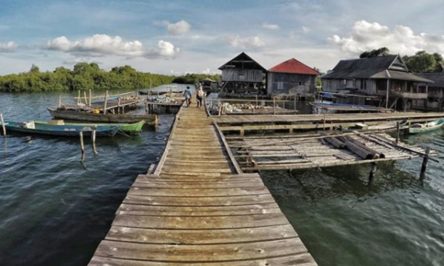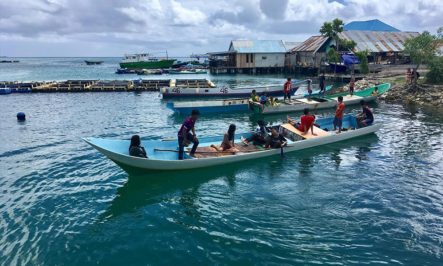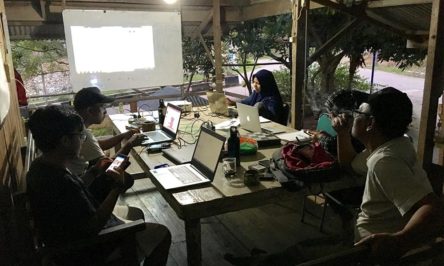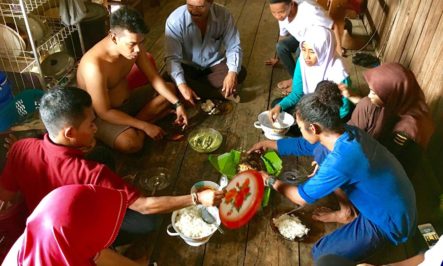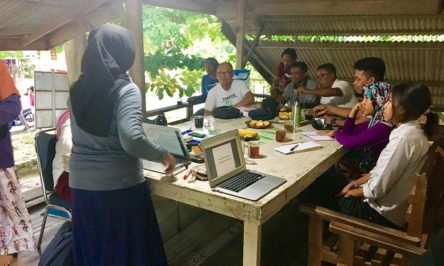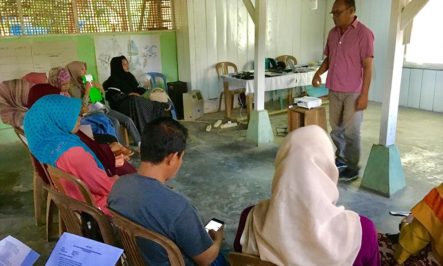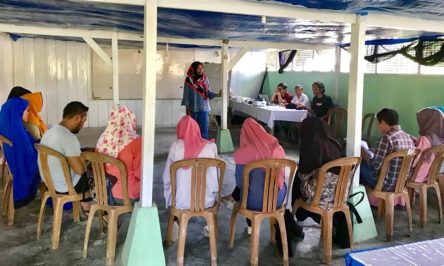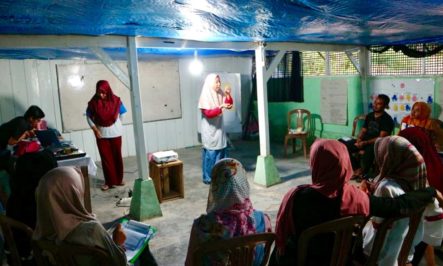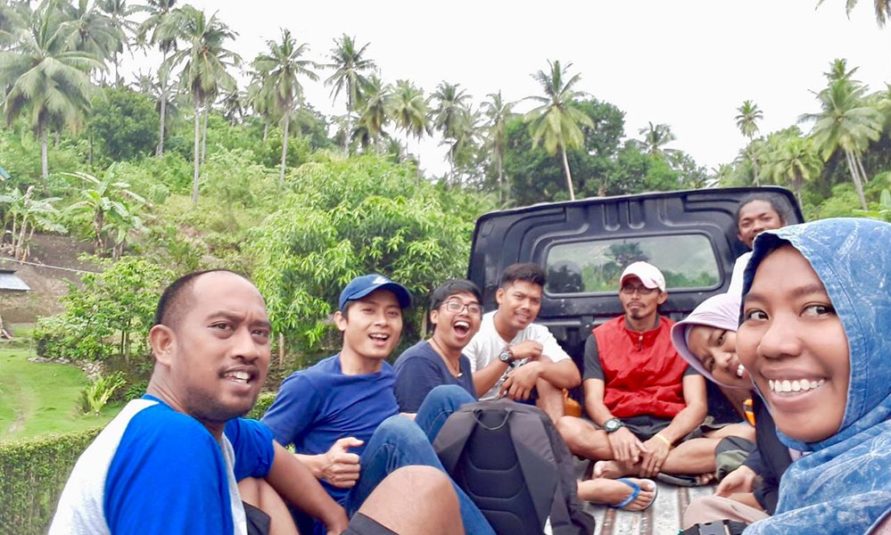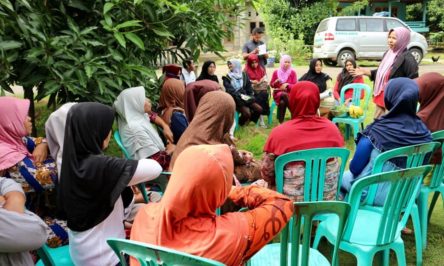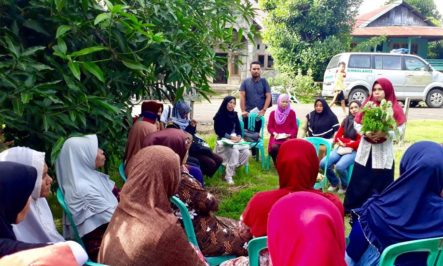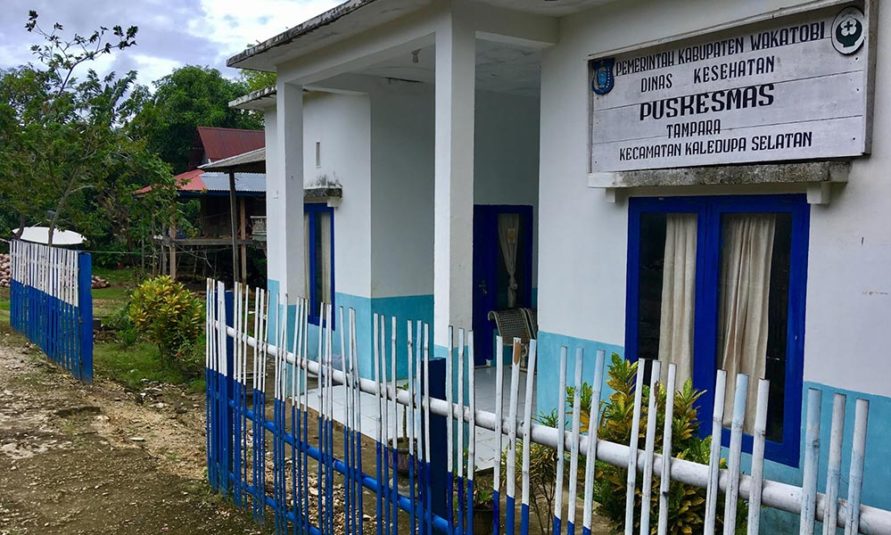In mid May 2018 on Kaledupa island in southeast Sulawesi, Indonesia, most people are busy preparing themselves to welcome Ramadan. The atmosphere is one of excitement, and I could hear the enthusiastic drumming of a local school band as I sat in Forkani’s office having a chit-chat with some of its team.
Forkani is a community-based organisation specialising in sustainable resource management, and is one of Blue Ventures’ partners in Indonesia. The Forkani team were excited about Ramadan, but they were also excitedly preparing for a training and sharing event they were holding for Kaledupa’s health workers.
Forkani is an environment-focused organisation, but over the last few months they have been integrating health programmes into their natural resource management work. This holistic approach is called PHE, and reflects the integrated nature of people, their health and the environment.
By implementing such an approach, Forkani aims to address unmet health and family planning needs, food security issues, limited healthcare services, and other health-related challenges that may prevent people from becoming more involved in effective marine resource management.
Recently, Forkani has been working on strengthening the delivery of health services by government-run health centres known as Puskesmas. The training session they were preparing was to help improve the communication skills and tools of the Community Health Workers (CHWs) from the Puskesmas in two districts of Kaledupa.
Coming into this discussion, I was a little confused. What do communication skills have to do with healthcare services or with natural resource management? This question was easily answered by the Forkani team, who have over a decade of experience working with Kaledupa communities and observing the barriers they face in regards to healthcare.
Some of the people in Kaledupa are reluctant to visit Puskesmas as they find it difficult to understand some of the issues or information communicated to them. This can be due to the use of specific and technical health terms, or due to an inability to relate the information to their daily life because foreign or unfamiliar examples are used to explain health issues. These are the types of barrier that Forkani were hoping to tackle with their training.
We want to contextualise the language, demonstration, and communication methods, so that more people feel encouraged to use their local healthcare services” – Beloro, Coordinator of Forkani.
On the first day of training we welcomed 12 CHWs from 3 different Puskesmas to Forkani’s office. The session was led by Forkani member Hasanuddin, an expert in community engagement, who spoke on how to run effective healthcare consultations and wider community meetings.
He emphasised the importance of using local wisdom and culture, so that the takeaway messages could be understood across Kaledupa and feel relevant to the communities. He encouraged collaboration with prominent influencers and stakeholders in the communities to help increase public engagement. He also advised disseminating promotional content in coordination with seasonal activities, and not at a time when no-one would be around to see it.
All these factors influence whether people will attend meetings, whether they engage with the health promotion messages, whether they regard their personal or environmental health as a fundamental need, and whether people actively participate in health or environmental programmes.
Instead of using a single communication technique for every community, Forkani has found that customising their content to the needs and interests of their audience is a far more effective engagement strategy.
Wind and pouring rain accompanied the second day of training, but the mood of the attendees was still one of excitement and interest. The topic under discussion was how to target communications to specific audiences based on their needs.
Kaledupa is a diverse island, so a few of the Forkani team shared their experiences in using different forms of media to reach different demographics. They have previously used unique handmade pictures and 3D octopus models to explain the potential of octopus fishery management to remote coastal communities, but they have also used board games and tools made out of recycled plastic bottles to explain waste management strategies to students living in urban areas.
Instead of using a single communication technique for every community, Forkani has found that customising their content to the needs and interests of their audience is a far more effective engagement strategy.
The final day of the training was the most exciting for me, as it was a field-based training day. To make the training more participatory, and to give the attendees an opportunity to practice their new skills, Forkani had arranged a health promotion and sharing session with a group of women from a village called Tampara.
On our arrival in Tampara, we found the group of women sitting outside next to some mango trees. The Puskesmas health workers took turns to convey information on various health issues, while the rest took notes on the communication methods being used.
One of the standout moments during this exercise was when one of the health workers used local food produce to explain nutrition. This contextualisation received a very positive response from their audience, with lots of laughs and exclamations of “now I understand”, “I can get that in my backyard” and “I cook them sometimes”.
I think the outdoor setting, chosen by the women, also helped to create a relaxed atmosphere for discussion. It’s a meeting format commonly used to socialise and with family and friends, and everyone seemed comfortable raising questions and sharing their thoughts.
We all returned to the Forkani office in the afternoon to discuss the health workers’ notes, evaluate the results of the Tampara visit, and wrap up the training. The Forkani team were all encouraged and happy with how the training had gone, and hoped that the health workers would now be better equipped to improve the health status of communities in Kaledupa.
Having initially been confused, I can now clearly see why Forkani have invested in this training. A holistic approach recognises the interconnectivity of challenges, and by collaborating with the Puskesmas to build healthier communities, Forkani are helping to remove the barriers preventing people in Kaledupa from engaging in other projects.
Stronger communication skills help increase the take up of community health measures which in turn helps increase engagement in sustainable management strategies for the island’s natural resources. By making these connections, we can all help sustain real change in our communities.


